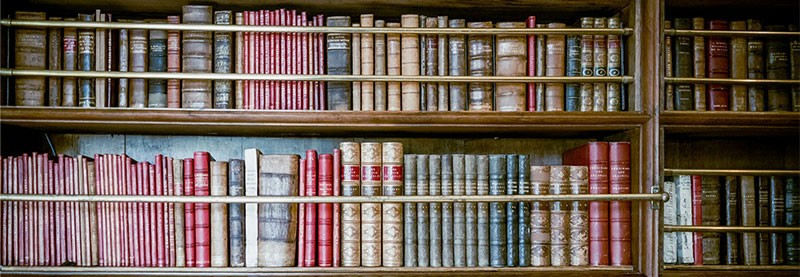Intellectual Property Insights from Fishman Stewart
Mini Article – Volume 24, Issue 2
Share on Social

Who Can Read My Manuscript?
By Kristyn Webb
A few years ago, the Copyright Office received a large number of requests from Twilight fans who wanted to get a peek at the registered and unpublished manuscript of Stephanie Meyer’s Forever Dawn. Meyer wrote the manuscript in 2003, and registered the work with the Copyright Office in 2004, but fans were generally unaware of its existence until Meyer spoke about it in a Q&A event in 2020—even though Forever Dawn’s registration with the Copyright Office was cited in court pleadings when Meyer was sued by a fellow vampire-fiction writer Jordan Scott in 2009 for allegedly copying his book The Nocturne which was published in 2006. The requests from the public to inspect Copyright Office records prompted authors to wonder whether submitting their works for registration with the Copyright Office will make them available for anyone to read.
The Copyright Office requires that you submit a copy of your work in order for it to be registered. For unpublished works, the Copyright Office will retain a copy of the work for the duration of the term of protection. For published works, the Copyright Office may select certain works to be retained and made available in the Library of Congress if the applicant submitted physical copies of the work.
Submitting works does not mean that the public will have free access to them. For a member of the public to obtain a copy, they must submit a request to the Copyright Office and pay a fee. A proper request must include (1) the permission of the copyright owner, (2) a court order to produce the copy, or (3) a statement that there is active or prospective litigation involving the registered work.
Works submitted may be made available for public inspection by appointment on site at the Copyright Office in Washington D.C. However, unless the person has permission of the copyright owner, they cannot make copies or take photographs of the work.
In 2020, in-person services were halted for a while at the Copyright Office due to the Covid-19 pandemic. Once the Copyright Office resumed taking appointments, a number of fans made the trip to read the Forever Dawn manuscript. So, unless you are publicizing the fact that your unpublished manuscript is registered with the Copyright Office, and your fans are enthusiastic enough to make the trip to Washington D.C., or you are involved in litigation where your manuscript is being used as evidence, it is unlikely that anyone (besides the registration specialists at the Copyright Office) will ever read it. For many authors, the benefits of obtaining a registration outweigh the risk of a zealous fan prematurely leaking major plot points and spoilers ahead of publication.
Kristyn Webb is the Group Leader of Fishman Stewart’s Copyright Practice Group, and holds a Master’s Degree in Copyright Law from King’s College London.



Published January 12th, 2024
Related Content from Fishman Stewart
People have long pondered whether or not the Giza pyramids were indeed solely burial chambers, which was the only known, and archaeologically determined, use—until now.
By 1930, efforts began in New York to replace Mother's Day with Parent's Day because men were more than just breadwinners. Those efforts didn't catch on, probably because in that era, women often spent more time in the home.
In February, Nike and Skims announced that they will be working together on a new brand, NikeSkims. The co-brand will create a new line of training apparel, footwear, and accessories specifically designed to meet the unique needs of women athletes.
Generally, federal courts have exclusive jurisdiction over copyright cases, and often, this presents an insurmountable paywall for individual artists and small businesses to vindicate their rights, especially where the value of the individual copyrighted works are relatively low.
Dedicated to raising public awareness about the importance of encouraging innovation and creativity throughout the world, the World Intellectual Property Organization (WIPO) annually observes World Intellectual Property Day on April 26 to showcase the role that patents, trademarks, industrial designs, copyrights and trade secrets play in our everyday lives.
Hold onto your foam fingers, sports fans – college sports just got a whole lot more interesting! The latest updates to Name, Image, and Likeness (NIL) rules are making student-athletes bigger than ever, and it’s not just about the game anymore.
Did a federal court in Louisiana recently decide that US copyrights are global rights? It seems so.
One of his most famous songs, “Lose Yourself” was recently at the center of a lawsuit. In 2019, Eminem’s publishing company Eight Mile Style sued Spotify claiming that Spotify streamed a number of its musical compositions without proper licenses.
One of the most common challenges is whether AI should be free to train on data that is protected by copyright and owned by third parties without first obtaining permission.
The U.S. Copyright Office (USCO) recently published its latest report on AI and “copyrightability.” In short, the USCO considers only some AI-generated works to be sufficiently creative as to deserve copyright protection, and thus, registration.
IDENTIFYING, SECURING AND ADVANCING CREATIVITY®












